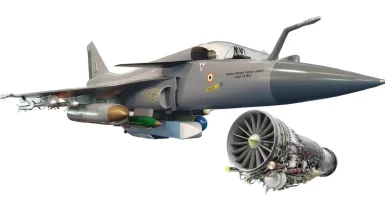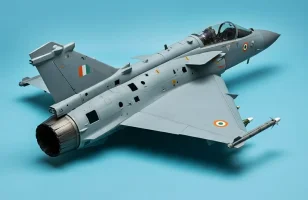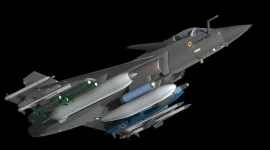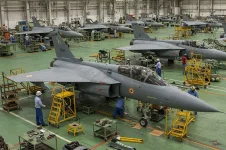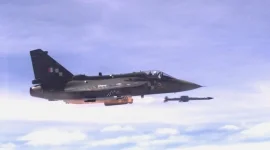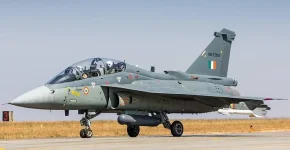- Views: 2K
- Replies: 7
In a significant move to accelerate the manufacturing of the Tejas Mk2 fighter jet, India's Aeronautical Development Agency (ADA) and Hindustan Aeronautics Limited (HAL) will outsource the production of the aircraft's windscreen and canopy to private Indian firms.
This strategic decision aims to prevent potential production bottlenecks and establish a resilient supply chain to meet the Indian Air Force's (IAF) future requirements.
The Tejas Mk2 is a 4.5-generation Medium Weight Fighter, representing a substantial upgrade over the existing Tejas platform. A key feature of the new jet is its redesigned canopy, which is aerodynamically optimised to improve pilot visibility and overall performance.
The windscreen is a vital component that must provide exceptional optical clarity while maintaining structural integrity under extreme combat conditions. While HAL was initially tasked with its production, the decision to involve the private sector is intended to leverage wider industrial capacity and expedite the manufacturing timeline once mass production begins.
This outsourcing initiative is a key part of the government's "Make in India" policy, which promotes self-reliance in the defence sector. By distributing the workload, the move will reduce the manufacturing burden on HAL.
The state-owned aerospace giant is currently engaged in several critical projects, including delivering the Tejas Mk1A fleet to the IAF and spearheading the development of the futuristic Advanced Medium Combat Aircraft (AMCA).
The Tejas Mk2, which is projected to enter service by 2027, will be equipped with advanced avionics, a more powerful General Electric F414 engine, and a greater weapon-carrying capacity, making a robust supply chain essential.
By bringing private companies into the production fold for critical components, ADA and HAL aim to guarantee both the quality and timely delivery of the aircraft, which is vital for its operational readiness.
It is anticipated that companies with proven experience in aerospace composites and specialised glass manufacturing will be selected as partners in the near future.
This collaborative approach is viewed as a blueprint for integrating private industry into major defence projects, fostering a more capable and self-sufficient domestic industrial ecosystem.

